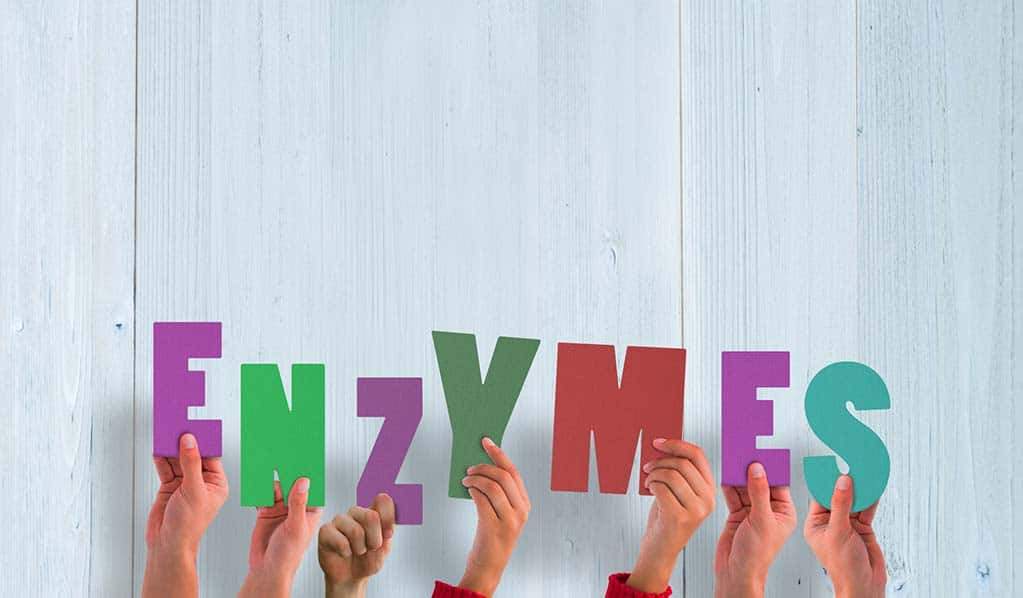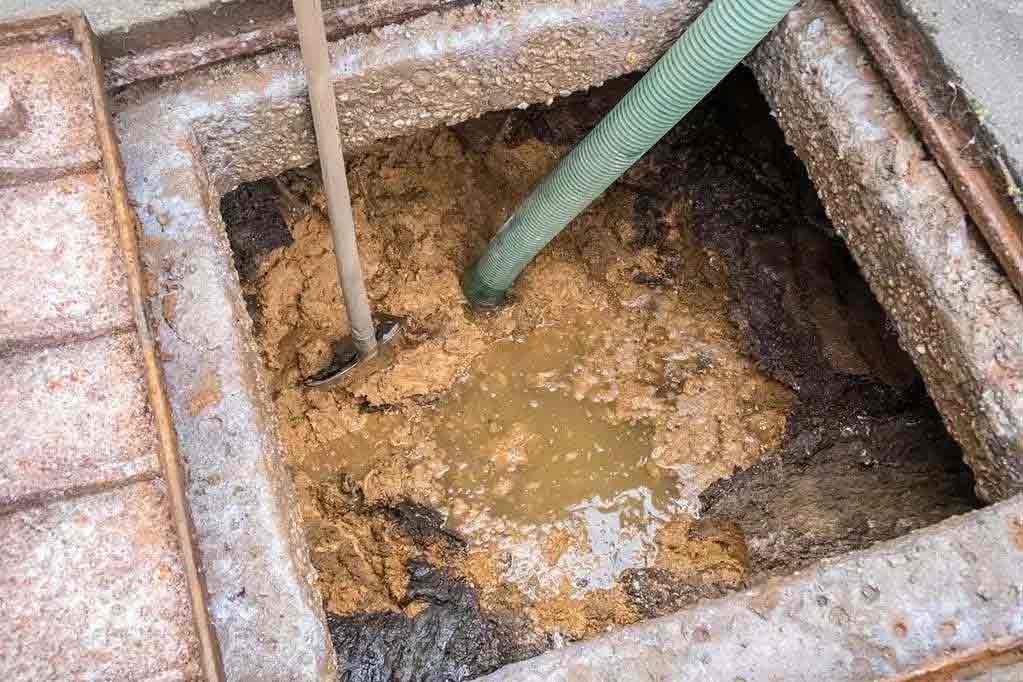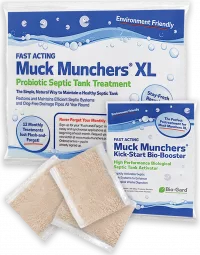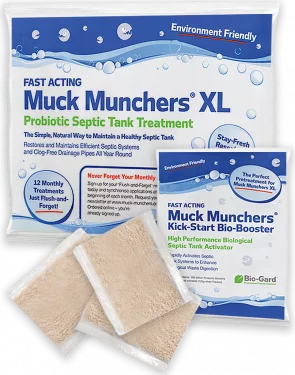What is a Septic Tank Enzyme?
A septic tank enzyme is a catalyst, produced by the good bacteria in your septic tank, that speeds up biochemical reactions. In a nutshell that’s about it – well, almost.

A bacterial enzyme septic tank treatment helps break down organic material. The enzymes produced by bacteria in your septic tank, or package sewage treatment plant, effectively cut down bigger molecules in natural waste – making them easier for the bacteria to digest the smaller, less complex molecules they produce, removing nasty scum and sludge in your septic tank. The science behind the process is fascinating, and thankfully, it is easy to introduce septic tank enzyme products (using probiotic bacteria) with a simple flush of the toilet.
Septic tank bacteria will keep producing enzymes almost indefinitely, providing there is organic waste to eat through and digest. That is why it is so important to regularly add healthy bacteria to your septic tank and ensure you don’t flush waste that will harm microbial populations.
How Do Septic Enzymes Work?
Septic enzymes are produced by carefully selected bacteria, that will thrive naturally in your septic tank system on organic waste. It is always a good plan to top up your bacteria frequently, using a septic tank treatment such as Muck Munchers XL. If you fail to nurture your bacteria they can die off and, therefore, stop producing enzymes that keep digestion up to pace.
Enzymes in your septic tank keep scum and sludge layers low. In fact, enzymes largely take on scum build-up, cutting down bigger, tougher molecules that would otherwise allow your septic tank to back up and potentially overflow. The bacteria, which produce these enzymes, can then digest the left-overs. Without enzymes, bacteria would struggle to keep your tank waste levels low.
The bacteria will, with the help of the enzymes they produce, munch through organic ‘solids’ and convert them into carbon dioxide and water. This means that, at the end of the process, your soakaway can simply drain relatively pure water naturally into the wider area without polluting the local environment.
Bacteria Produce Enzymes So They Can Effectively Do the Job They are Born to Do!
In a septic tank, and indeed modern treatment plants, too, you are going to need bacteria and enzymes to stop your tank levels from causing bad smells or overflowing. Billions of bacteria and enzymes work together in your tank to become fantastic septic tank fat digesters and organic solids removers – so that you only discharge treated effluent waste into your soakaway.
What Are the Different Types of Enzymes?
There are many different types of enzymes which have many purposes. The enzymes septic tank bacteria produce are targeted specifically at breaking down the types of organic matter that households typically discharge.
For example, the enzyme cellulase breaks down toilet paper – while amylase is useful in degrading starchy foodstuffs and similar waste. When it comes to fats, oils and greases lipase producing bacteria are the key to digestion success. Protease is the other major enzyme, digesting proteins, including ‘poo’.
Without bacteria and these all-important enzymes, septic tanks are prone to backing-up, causing major concerns for their owners, as well as for the local environment.
With this in mind – when exactly should you add bacteria to start producing enzymes in your septic tank?

When Do You Need to Use Bacteria and Septic Enzymes?
We always recommend you use a regular septic tank bacterial treatment to top-up the good bacteria in your septic tank. This will help to –
- Promote a healthy population of both bacteria and enzymes.
- Ensure organic waste is effectively being broken-down
- Stave off unnecessary and expensive pump-outs.
The septic tank enzyme treatment process, which takes effect by adding bacteria to your septic system, can be extremely useful if you are starting to notice –
- Your drains are getting slower
- Your tank is starting to emit foul smells
- Drains from or to the tank are beginning to back-up
- Puddles of water or lush grass near your soakaway
In most cases, topping-up your tank with Muck Munchers will help reactivate the digestion of waste in your system. However, be careful to balance adding bacteria and their enzymes to your tank with considerate flushing. If you flush inorganic waste or use chemical products likely to kill the microbes, your tank effluent will build-up. With very few microbes, continued digestion will slow down or cease.
Introducing more bacteria into your septic tank on a regular basis is a natural, affordable, and speedy option for breaking down solids and scum, to ensure effective tank and soakaway performance.
Benefits of Adding Enzyme Producing Bacteria to Your Septic System
Bacteria producing enzymes for septic tank waste breakdown will ensure your system drains healthily for the months and years to come. Without bacteria, and without enzymes, you will always be reduced to physically draining and pumping your tank.
The regular addition of Septic Tank Bacteria Treatment will ensure that your system is working to digest organic waste.
Adding enzyme producing bacteria to your septic tank will eliminate foul smells emitting from the tank, drains and soakaway, and potentially in the home.
Frequent bacteria top-ups prevent you from having unnecessary pump-outs – (you generally shouldn’t need more than one or two every ten years), whether it be an old septic tank or modern treatment plant. Healthy microbe populations also ensure that you keep your soakaway and tank from damage and virtually eliminate surface scum or sludge developing, which can slow down the digestion process. Above all, regular bacteria and enzyme introduction will ensure that your household waste stays where it needs to be – in the tank, not leaking or seeping into your garden or other outdoor areas.
In Summary
Healthy septic tank bacteria produce enzymes that cut and slice organic waste – so crucial in helping to degrade and digest all manner of organic solids. Without such bacteria and enzyme action, septic tanks will work under pressure, potentially causing blockages and smells, and may even cause pollution to the local environment.
That’s why it is essential to top-up septic systems with a septic tank treatment such as – Muck Munchers XL. While it is safe to assume that your tank will have some sort of bacterial community, adding additional microbes on a regular basis ensures this process is optimised – continuously helping to enhance the break-up and digest organic solids in your tank.
It’s also important to avoid flushing items and chemicals into your septic tank that may harm bacterial populations. Of course, you need to clean toilets and drains, but take care by using septic tank friendly cleaning products whenever you can. That will ensure that those very valuable probiotic bacteria remain healthy and continue to work hard for you.










